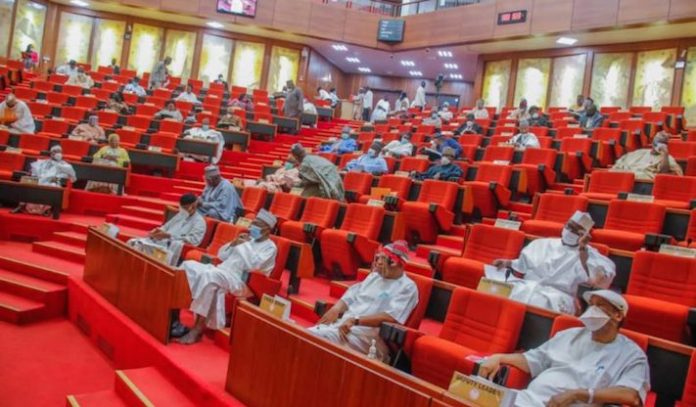In a dramatic turn during a plenary session at the National Assembly on Tuesday, Senator Kawu Sumaila of Kano South made serious allegations against his colleagues, claiming that many lawmakers are involved in drug abuse while performing their official duties. Senator Sumaila’s remarks came during the debate on a bill to establish the National Institute for Drug Awareness and Rehabilitation.
The senator, a member of the New Nigeria Peoples Party (NNPP), asserted that numerous members of the National Assembly possess hard drugs, which they store in their constituency offices and homes. He went further to suggest that a significant number of his colleagues have connections with drug dealers, a statement that has raised eyebrows across the political landscape.
“As I am speaking now, most of our offices in our constituencies, most of our political offices in our constituencies, most of our houses, when you go there, you will find out that there is a mountain of drugs and there are drug dealers in our offices and our houses. All in our houses,” Senator Sumaila said, addressing the Senate during the heated debate.
The senator did not stop at criticizing his fellow lawmakers. He also mentioned that he was aware of some senior politicians who actively support drug dealers in their illegal business, highlighting the need for urgent action against drug abuse within political circles.
“I can take you to some of the political leaders who are in so many ways contributing or supporting drug abusers in Nigeria. Therefore, Mr. President, we need to be serious,” he emphasized.
Senator Sumaila challenged his colleagues to prove their innocence by swearing on religious texts, including the Qur’an and the Bible, that they have not supported drug abuse during their campaigns. He urged them to reflect on their actions while campaigning and their interactions with youth, questioning their role in potentially encouraging drug misuse.
“Let us ask ourselves during our campaign, what are we doing with the so-called youth? How many of us can swear with the Qur’an or Bible that in any way we are not supporting drug abusers in our constituency?” he questioned.
The senator proposed conducting mandatory drug tests for politicians before they contest elections or assume any political office, suggesting this as a preventive measure to tackle drug abuse at the leadership level.
“And, Mr President, we need…whether we are allowing this bill to continue to have an agency or we are strengthening NDLEA, we need to create a situation where before contesting elections, or before taking a debate, at whatever level in government, you must go for a drug test,” he recommended.
Senator Sumaila called on his fellow lawmakers to collaborate with relevant stakeholders to curb the growing menace of drug abuse across the country. He pointed out that achieving the goals of the proposed bill would require a concerted effort from all political leaders and a united front against drug-related issues.
“Mr. President, there is one aspect which we need to look into. Whether we created this agency or strengthened the activities of NDLEA, we need to do something. We, as politicians, we, as leaders in this country, we, as stakeholders, we need to do a lot,” he urged.
“We all believe that religiously, both Islam and Christianity, even in our traditional religion, drugs-related abuse or drug abuse is prohibited. But who and who are encouraging and who is supporting it?” he added, questioning the role of political leaders in addressing the issue.
The session took a sharp turn when the Deputy Senate President, Barau Jibrin, who was presiding over the plenary, intervened. Representing Kano North, Senator Jibrin ruled Senator Sumaila out of order, stating that his comments were not relevant to the bill under discussion.
“Order 56. Debate upon any motion, bill or amendment shall be relevant to such motion,” Senator Jibrin declared. “While we are speaking, while we are contributing, our contribution should be relevant to the subject matter. In this case, your contribution is not relevant to the subject matter. I, therefore, rule out of order.”
The Deputy Senate President’s ruling marked the end of Senator Sumaila’s contributions to the debate, but the remarks have since sparked significant public attention and debate, raising concerns over the alleged prevalence of drug abuse within political circles in Nigeria.



